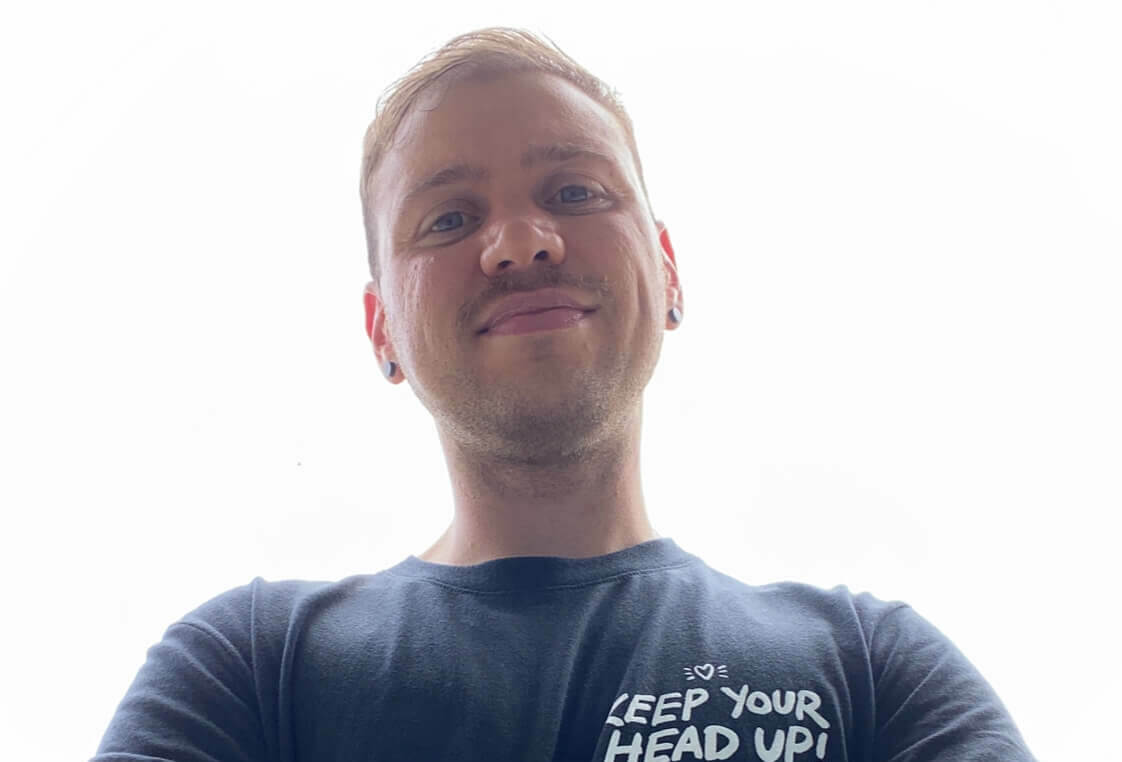Eating disorders – The language of seeking help
When I was twelve years old, I was diagnosed with an eating disorder. At the time, I was young, confused and struggled to communicate with people about what I was experiencing.
I remember conversations that I had with myself, thinking about what I would say to people if they asked or commented. I was left feeling unsure and anxious about how I would respond. Hindsight has allowed reflection, which has led me to understand that I found it difficult to communicate at the time.
In the last two years, I have found myself wanting to speak out about my personal experience as a way of processing a significant life event that has shaped me today. I also wanted to help others navigate the narrative of their own journey. I was fortunate to have a supportive team around me that accelerated my recovery. I would like to show others the importance of finding the courage to ask for help.
Eating disorders can affect all types of people. According to Butterfly, approximately 9% of Australians will experience an eating disorder in their lifetime, and more than 37% of these people are male.
This highlights the importance of breaking the stigma around this issue, as eating disorders are commonly seen as an illness that only affects females. I feel passionate about ensuring the conversation and communication around seeking help is more accessible, to help ensure every person gets the support they deserve. As we know, an eating disorder doesn’t only affect the person diagnosed, but everyone who loves and cares for them too.
Language played a big role throughout my experience. There were certain words that triggered me. In particular, the words ‘suffering’ and ‘diagnosis’, painted a negative picture in my head. I never wanted to be categorised or labelled under those terms. Throughout my healing process, I started to build the courage to understand and accept that those words were not negative. I realised that I did not need to shy away from them. Being educated has allowed me to understand the intended meaning behind specific words, which helped me to recover.
This sparked an interest in me to start a conversation with those around me. I began to feel more comfortable to share my personal experience. I began to communicate more openly about what I needed from others during my recovery. This meant that not only was I able to access support from the people around me, I was able to support myself in the most open and trusting way.
My self-talk, thoughts and feelings also changed overtime and started to become much more positive. I was able to make a conscious effort to change the way I spoke to myself, inhibiting the internal battle that would constantly be present.
Each person has their own way of showing care and checking in on others. My experience has taught me the beauty of communicating with people, and how changing the way words are used in a conversation can alter their meaning.
In the future, I would like to see people using words such as:
- “You don’t seem to be yourself, I just wanted to check in.”
- “Are you ok?”
- “I haven’t heard much from you lately, so I just wanted to see how things are going.”
- “How can I support you?”
Try commenting more on behaviour and emotion instead of physical appearance. Avoid getting angry or frustrated, even if a person rejects your concerns.
What would I tell my twelve-year-old self?
I would tell my twelve-year-old self not to fear seeking help. To not fear vulnerability. To be more honest with yourself and your needs. To communicate more and be open to having recovery focused conversations. To understand the importance of letting your loved ones’ support you through your journey. Realising that something needs to change is always the first step to recovery.
In the future, I would also like to see people communicating differently with those who are experiencing eating disorders.
I would also like to see:
- More awareness and education about eating disorders and treatment.
- People knowing how to support someone they are close to that is experiencing an eating disorder.
- The creation of a safe space to speak freely about the topic of eating disorders.
- People feeling comfortable to share their story. Starting a dialogue may help others in their position to deal with their recovery.
In an exclusive article, Damon Johnston, of ‘The Australian’, reported that, “Amongst the hardest hit by lockdowns are girls aged 12 and above who are battling a wave of serious eating disorders. The six-week average on February 28 saw known treatment numbers jump from 279 in 2020 to 352 this year, an increase of 26 per cent (Damon Johnston, 2021).”
RU OK Day occurs once a year, but that shouldn’t mean we don’t actively check in on our loved ones and ourselves every other day of the year. I vouch for the importance of having the confidence to check in and stay connected with people, trying to help those going through difficult times.
Get them to contact someone they trust or contact the Butterfly National Helpline on 1800 ED HOPE (1800 334 673), via webchat or email support@butterfly.org.au
My real wish is that together we can change the stigma, change our language and create an open pathway for people to seek help.
Jaimee Krawitz is a Registered Counsellor working at a Psychology Practice in Melbourne.






















